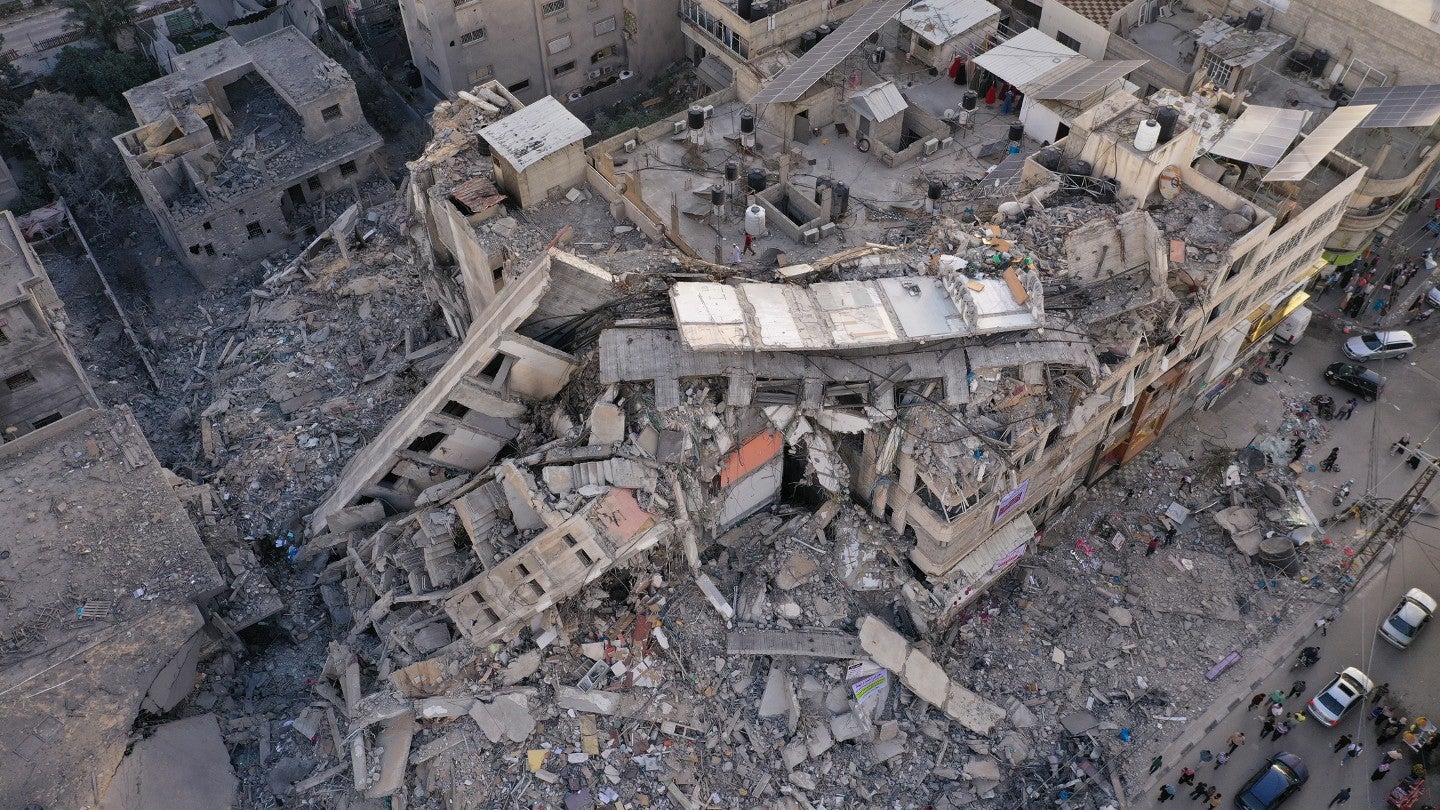
A second front in the Israel-Palestine war will open in the occupied Golan Heights territory along Israel’s north-eastern border with Syria, geopolitical analysts at GlobalData-owned research group TS Lombard have predicted.
As the conflict in the Middle East escalates, Christopher Granville, managing director of global political research, anticipates that “there will be other fronts in the war”, naming the disputed Golan Heights in western Syria as an overlooked flashpoint.
Granville’s prediction, which came during TS Lombard’s War-Torn World: Ranking Geopolitical Risks webinar, contradicts the consensus of most analysts that a Lebanon-Israel front is more likely to open first.
Clashes are already ongoing between Lebanese militant group Hezbollah and the Israel Defense Forces (IDF) on Israel’s northern border.
On 13 October, a Reuters journalist was killed by Israeli missiles fired on Aalma El Chaeb, southern Lebanon. Six other journalists were injured.
Why the Golan Heights?
On 12 October, Syrian state media outlet SANA reported that Israel had launched missile strikes on Syria’s two main airports in Damascus and Aleppo. Reuters says this was misreported with an image of an Israeli airstrike on Gaza, not Syria.
The Golan Heights have been a source of tension since Israel annexed them in 1981 during the Arab-Israeli War.
Israel claims the Golan is a necessary buffer zone between itself and civil war-torn Syria. Should the IDF vacate the territory, Israel says Iran – an ally of Syria – will launch attacks on Israel from the Syrian side of the border.
Syria insists the Golan is occupied territory and has demanded its return. Both nations covet the Golan’s rich water resources and fertile land.
Hundreds killed in Gaza hospital airstrike
While debates rage over the potential involvement of Hezbollah, Syria and Iran, the conflict and casualties remain heavily centred on the Gaza Strip.
US President Joe Biden arrived in Tel-Aviv today (18 October) following widespread outrage at an airstrike on Al-Ahli hospital in Gaza, which killed approximately 417 people, according to the Palestinian Health Ministry.
Palestine has blamed Israel for the attack, but Israel says it was an errant missile fired by Islamic Jihad, a smaller militant group that has worked with Hamas in the past.
There has been a wave of protests against the hospital airstrike across Middle Eastern nations including Jordan, Iran, Iraq and Lebanon. Internationally, countries including Canada, Germany, Egypt, Turkey and Qatar have condemned the attack.
International calls for Israel to follow rules of engagement have intensified after shelling from Israeli tanks hit a UN school in Gaza’s al-Maghazi refugee camp yesterday (17 October).
Six people were killed and dozens wounded, according to the UN’s Palestinian refugee agency.
All eyes now turn to Biden’s visit. While the White House is expected to reemphasise support for long-time ally Israel, there is pressure on Biden to persuade Israeli Prime Minister Benjamin Netanyahu to allow a humanitarian corridor into Gaza.
Russia’s “largest-scale” attack on eastern Ukraine
Events in Israel and Palestine have meant Russia’s heaviest attack on eastern Ukraine has gone under the radar, despite involving heavy artillery, rocket launchers, dozens of armoured vehicles and more than 2,000 troops.
“There hasn’t been widespread reporting… of Russia’s reverse counter-offensive across the entire front, particularly near the city of Donetsk,” says Granville.
Russia’s three-battalion assault is centred on the strategically and symbolically key town of Avdiivka. Described as the gateway to Donetsk, Avdiivka has been on the front line since Moscow first invaded in February 2022.
Ukrainian officials say they have repelled hundreds of air strikes, artillery attacks and bombs dropped on Avdiivka and the surrounding area since 10 October.
Russia’s “reverse counter-offensive” is expected to tie in with the US’ support for Israel.
US domestic policy expert Grace Wan says that a “floor vote linking Israeli and Ukrainian aid” will likely take place in Washington, although the “chaos on Capitol Hill” around the US House speaker vote will delay any Israel-Ukraine assistance package.




